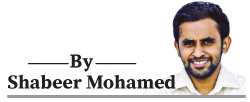 The 2025 Philippines midterm election, held on May 12, was a significant event in the country’s political history. With a record-breaking voter turnout of approximately 82 percent, Filipinos elected officials for 12 Senate seats, all 317 seats in the House of Representatives, and numerous local positions. The elections were marked by intense competition, shifting alliances, and notable political comebacks.
The 2025 Philippines midterm election, held on May 12, was a significant event in the country’s political history. With a record-breaking voter turnout of approximately 82 percent, Filipinos elected officials for 12 Senate seats, all 317 seats in the House of Representatives, and numerous local positions. The elections were marked by intense competition, shifting alliances, and notable political comebacks.
In the Senate race, candidates aligned with Vice President Sara Duterte secured five of the 12 available seats, while allies of President Ferdinand “Bongbong” Marcos Jr. won six. Bong Go, a close associate of the Duterte family, topped the senatorial race with over 26 million votes. The House of Representatives saw the Lakas-CMD party, led by Speaker Martin Romualdez, emerge as the largest party with 104 seats. A remarkable development was the re-election of former President Rodrigo Duterte as Mayor of Davao City, despite his detention at the International Criminal Court in The Hague on charges related to his controversial war on drugs. His victory underscores the enduring influence of the Duterte family in Philippine politics.
Why the 2025 elections matter
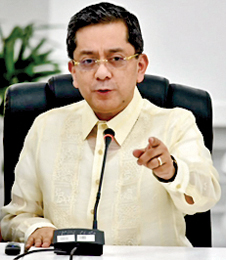
Comelec Commission on Elections – George Erwin Garcia
The 2025 elections were more than just a routine political exercise. They served as a critical juncture in the Philippines’ democratic journey. The high voter turnout reflected the public’s engagement and desire for meaningful change. These elections also highlighted the deepening rift between President Marcos Jr. and Vice President Duterte. The outcome of the Senate races is particularly significant, as the Senate will soon deliberate on impeachment charges against Vice President Duterte, accused of misusing public funds and plotting against President Marcos Jr. The political landscape is shifting, and the results of these elections will shape the country’s direction in the coming years.
Political dynasties in the Philippines
Political dynasties continue to wield significant influence over the Philippine political landscape, as evidenced by the 2025 elections. According to the Philippine Centre for Investigative Journalism (PCIJ), 87 percentof the country’s 82 Provincial Governors, 71 , hail from political families. Forty-seven of these Governors sought re-election, while 19 others had relatives vying to succeed them.
The prevalence of dynastic politics extends beyond the provincial level. In the House of Representatives, over 80 percent of district seats are occupied by members of political dynasties. Similarly, 113 of the 149 Philippine cities are governed by political families, with 80 City Mayors from dynastic backgrounds seeking reelection in 2025.
The entrenchment of political families is further underscored by the emergence of “obese” dynasties and clans with five or more members holding or contesting various Government positions. In the 2025 elections, at least 18 such dynasties secured between five and 19 seats each, highlighting their expansive reach across different levels of governance.
This concentration of power within a limited number of families raises concerns about democratic representation and the potential stifling of political diversity. While some reform advocates view the 2025 elections as a missed opportunity to challenge these entrenched dynasties, there is a growing call for systemic changes to promote a more inclusive and equitable political environment.
Sri Lanka’s Election Commissioner’s perspective
Sri Lanka’s Election Commissioner, Saman Sri Ratnayake, visited the Philippines to observe the 2025 midterm elections and study the country’s Automated Counting Machines (ACM) System. Speaking to the Sunday Observer, he shared his thoughts on how this system works and whether it could be adopted in Sri Lanka.
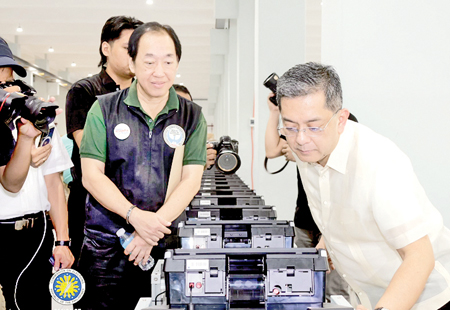
Comelec Chairman George Erwin Garcia
He said that in the Philippines, voters receive a large ballot paper listing Senate and local candidates, along with party names. “After filling it out at the voting centre, voters insert the ballot into a machine that reads it. A small printout of their selections is then provided, allowing voters to double-check before the paper is placed into a separate box. This process is designed to make vote counting faster and more accurate,” he said.
While Commissioner Ratnayake acknowledged the benefits of automation, he said that Sri Lanka’s current counting process is already efficient and doesn’t urgently need automation. He added that switching to such a system would require changes to Sri Lanka’s entire electoral framework.
He also noted important differences in electoral authority. “In the Philippines, the Election Commission has more power. It can disqualify candidates, impose penalties, and even have the financial authority to request election funds directly from Parliament. These powers allow for stricter enforcement of election laws and more independent decision-making,” he added.
The 2025 Philippine elections garnered significant international attention, with observers from various countries participating to ensure transparency and fairness. Among them were Tharindu Abeyrathna, an international election observer from the Asian Network for Free Elections (ANFREL), and Rohana Hettiarachchi, who served as the head of ANFREL’s mission.
Abeyrathna said that elections in the Philippines are of several types. “The President, Vice President, and Senators are elected for a six-year term, while members of the House of Representatives, Governors, Vice Governors, members of the Sangguniang Panlalawigan (Provincial Board members), Mayors, Vice Mayors, and members of the Sangguniang Panlungsod or Sangguniang Bayan (City/Municipal Councillors) serve three-year terms. Therefore, this was a mid-term election where people elected 12 Senators and all the other levels except the President and Vice President. Midterm means that this is the mid-term for the President and the Vice President,” he said.
He added that the Philippines was also the first country in Asia to introduce e-voting for expatriates during this year’s elections. “Interestingly, the electoral system does not require a voter ID to cast a ballot. Instead, the voter list is printed with each voter’s photograph. Unlike in Sri Lanka, no officials visit households to actively register voters. Voters are required to go to the relevant Government offices to register themselves. The country’s Commission on Elections (COMELEC) has offices at the national, district, and city levels, which makes it much easier for citizens to access election-related services,” Abeyrathna said.
Polling stations in the Philippines are typically open from 7.00 a.m. to 7.00 p.m., but this time, they opened as early as 5.00 a.m. to give priority to vulnerable sector voters such as the elderly, pregnant and differently-abled persons.
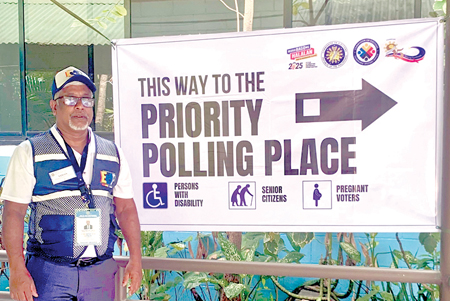
Saman Sri Rathnayaka at the voting center in Philippines
“From my observation, this was a very effective measure. Many vulnerable sector voters turned out early to vote. This election recorded the highest voter turnout in the country’s history, reaching approximately 82 percent. I believe this was largely due to the tight competition in national-level political clans. There is a 24-hour silence period before election day. While there are regulations on campaign finance, their enforcement is weak,” he said, adding that even prison inmates are allowed to vote in the Philippines. “There is also an absentee voting system for Government workers and election officials. However, the country does not yet have an advanced voting mechanism. Overall, the election process was peaceful. But whether it was truly fair is still questionable. Election stakeholders will have to work more on creating a fair field for everyone,” he said.
Meanwhile, Rohana Hettiarachchi provided deeper insights into the political dynamics and challenges observed during the election.
While explaining political dynasties, he said In the Philippines, political dynasties are very strong. “People vote for individuals rather than political parties. Individuals are stronger than the party structure in the country. That is why Rodrigo is also becoming the mayor in this election. Rodrigo is a very popular politician. This situation existed in our country until recently. But it has changed nowadays. But it is still the same in the Philippines,” he said.
He drew parallels to the 2018 Local Government elections, where an independent group won control of the Maharagama Municipal Council solely with the backing of former President Mahinda Rajapaksa. Similarly, in the Philippines, the name ‘Rodrigo’ referring to former President Duterte and his daughter, now Vice President, carry comparable political influence.
“The next thing is that the use of social media during the election was very high. There were a lot of election errors and misleading propaganda on social media. Also, poster cutouts are only allowed in public places in that country. There is no legal ban in other places. Unlike our country, there are posters and cutouts everywhere in that country. Compared to our country, political literacy in that country is very weak” he said.
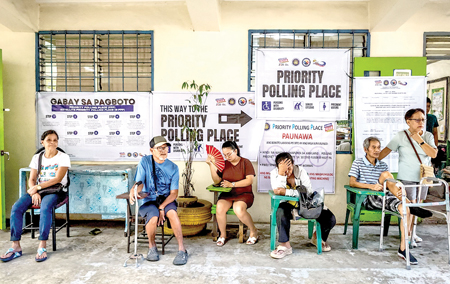
2025 Philippine Elections
Also, he added, the engagement of civil society and stakeholders with the Election Commission was very high. “The Election Commission works very closely with them. They listen to the suggestions brought by civil society. In addition, after the election results are counted and sent to the Commission, the results are simultaneously released to the Parish Pastoral Council for Responsible Voting (PPCRV) and the National Citizens Movement for Free Elections (NAMFREL) election observation organisations. They expect more transparency from this. This is the first time they have taken this decision,” he added.
Hettiarachchi also commended the Election Commissioner of the Philippines, George Garcia as a forward-thinking and talented official. “Because of him, this election was held in such an inclusive manner.
One of the allegations he had was that he was the personal lawyer of the current President, Bongbong Marcos. After Rodrigo appointed him in 2022,
he worked very skillfully and impartially.
I can compare it to J R Jayewardene appointing his personal lawyer, Neville Samarakoon, as Chief Justice in 1977. But after becoming Chief Justice, Neville Samarakoon worked without any loyalty and became one of the most talented Chief Justices Sri Lanka has ever had. Rohana concluded that this is exactly what happened in the Philippines,” he said.
ANFREL observation: Key findings
The 2025 Philippine midterm elections showcased notable advancements in electoral inclusivity and administration. A record-breaking voter turnout of 81.65 percent underscored the electorate’s robust engagement. The Commission on Elections (COMELEC) implemented measures to enhance accessibility, including the establishment of Accessible and Priority Polling Places, early voting hours, and special arrangements for persons deprived of liberty and Indigenous Peoples.
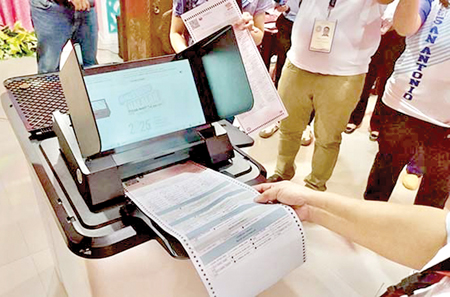
The automated counting
machine (ACM)
Under new leadership, COMELEC demonstrated improved transparency and responsiveness, fostering better collaboration with civil society organisations. The introduction of regulations addressing digital campaigning, social media, and artificial intelligence marked a proactive approach to modern electoral challenges. Collaborations with social media platforms and civil society aimed to manage online content and combat disinformation effectively.
Challenges identified
Despite these positive developments, several systemic issues persisted. Vote buying remained rampant, with reports of payments ranging from 500 to 30,000. The misuse of welfare programs and Government aid to influence voters was widespread, particularly before the official campaign period when the COMELEC’s enforcement capabilities are limited. Electoral competition was uneven, with many races uncontested and political dynasties maintaining dominance. The party-list system, originally designed to represent marginalised groups, has been increasingly co-opted by entrenched political families.
While new campaign finance rules were introduced, enforcement remained weak due to understaffed COMELEC departments and legal loopholes. Social media played a significant role in the elections, with content often focusing on personalities over policies. Although misinformation was not dominant, gaps in enforcement and media regulation were noted, exacerbated by the declining capacity of traditional media outlets.
On election day, the process was generally peaceful and well-managed. However, issues such as crowd control problems, technical glitches with voting machines, and concerns over ballot secrecy were observed. In the Bangsamoro Autonomous Region in Muslim Mindanao (BARMM), polling delays and voter frustration highlighted security and logistical challenges unique to post-conflict areas.
Recommendations

Tharindu Abeyrathyna
To strengthen future elections in the Philippines, ANFREL recommends expanding the powers of the Commission on Elections (COMELEC) to regulate early campaigning and state resource misuse, improving oversight of political campaign financing, and ensuring voting access for marginalised communities. They also call for reforms to curb political dynasties and prevent abuse of the party-list system. ANFREL highlights the importance of tackling online disinformation through stronger media regulation and voter education. These reforms aim to make elections more inclusive, transparent, and truly democratic.
The 2025 Philippine elections revealed the strength and strain within the country’s democratic institutions. While a high voter turnout signalled active public engagement, the dominance of political dynasties, ongoing legal controversies, and deep political divisions exposed the fragility of democratic norms. The presence of international observers and the insights from Sri Lanka’s Election Commissioner highlighted the potential of electoral innovations, yet also reminded us that technology alone cannot fix systemic issues.
As calls for reform grow louder, whether to strengthen campaign finance laws, empower the election commission, or dismantle entrenched family rule, the Philippines stands at a crossroads. The future of its democracy will depend on how it responds to these challenges, ensuring that power is not confined to the few but remains in the hands of the people.






